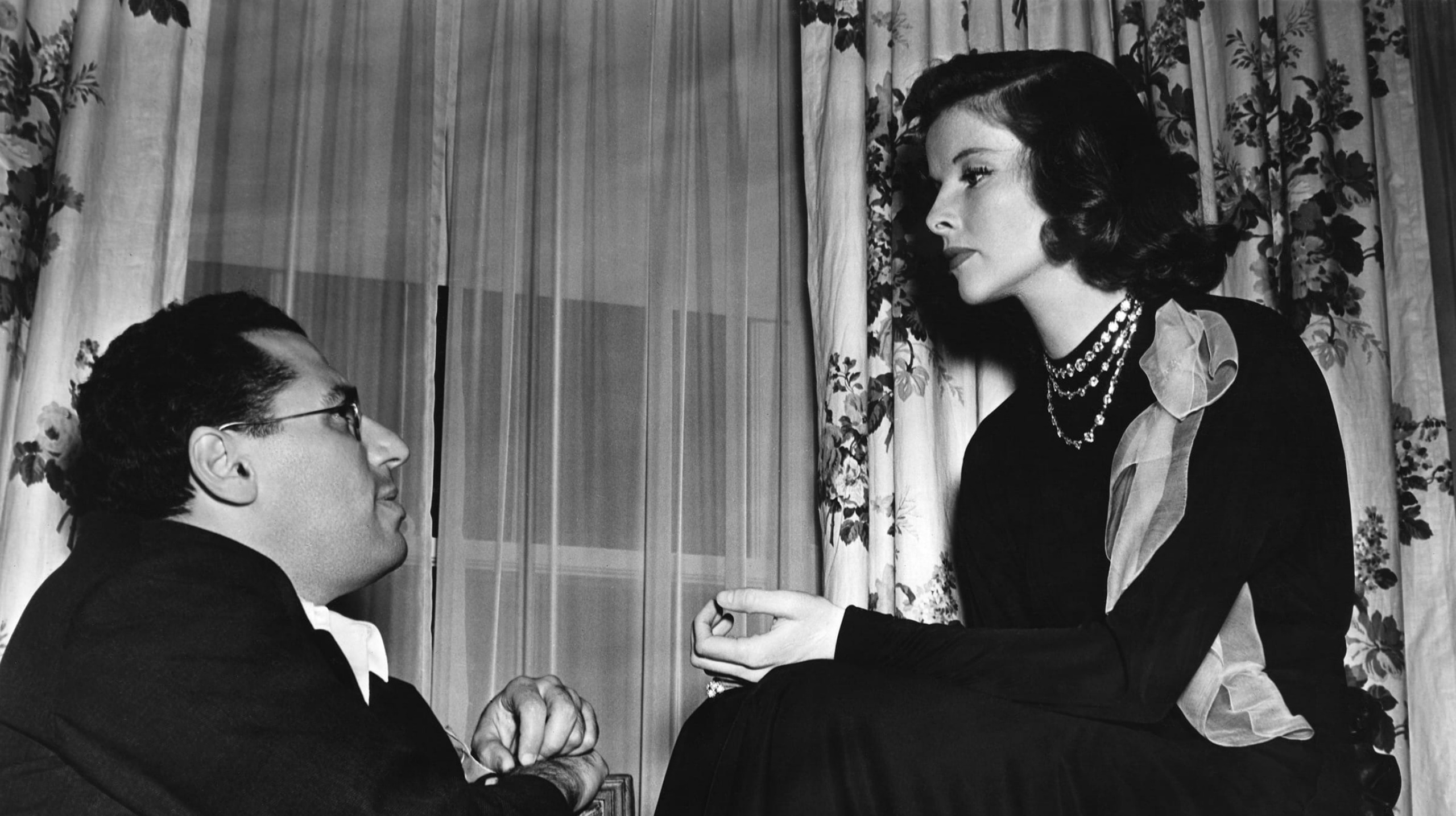RELATED ARTICLE
George Cukor’s Way with Women
The Philadelphia Story: A Fine, Pretty World
The Criterion Collection

Understudies everywhere should take heart at the tale of Katharine Hepburn’s long history with the role of Linda Seton, the high-spirited but reclusive heiress she plays in George Cukor’s 1938 Holiday. When the Philip Barry play the film is based on had debuted on Broadway ten years earlier, a twenty-one-year-old Hepburn understudied for the actress who made a hit as the unconventional Linda: Hope Williams, a real-life society debutante whose cropped blonde locks and flat-footed walk earned her the nickname the Park Avenue Swagger Girl and made her the subject of a brief fashion craze. “I stole a great deal from Hope,” Hepburn later admitted. “She was the first fascinating personality from that period . . . which wasn’t really ready for her. She was a woman who blossomed with a little more than she was supposed to.”
Over the course of the play’s successful six-month run, Hepburn got the chance to take the stage only once, and the performance was not a success; years later, she still sounded stung as she recalled her attempts to mimic Williams’s signature delivery, waiting in vain for the laughter she was used to hearing from the wings. But the part of Linda, a volatile misfit who swings between passionate zest for life and near agoraphobia, stayed in Hepburn’s repertoire, and in her head. In 1932, she made a screen test for her first film, A Bill of Divorcement, to be directed by the up-and-coming Cukor. She chose to audition with a scene from Holiday, which two years before had been adapted into a well-regarded film with Ann Harding in the Linda role. Though Hepburn’s line readings were still rough, the director was struck by the expressive gestures and curiously forthright manner of the angular young woman he described as “this odd creature . . . unlike anybody I’d ever heard.” She got the part, with Cukor’s insistence winning out over the initial misgivings of RKO production chief David O. Selznick—who objected in a studio memo to what he called “that horse face”—and only a year later made Morning Glory, for which she won the best actress Academy Award. (It would be the first of four in her lifetime—to this day the most acting Oscars won by any individual.)
“Part of the pleasure of watching Hepburn as Linda comes in knowing that the character’s journey was about to become the performer’s as well.”


“Holiday’s energy derives from the way Grant and Hepburn occupy the space they share, moving with an informality and freedom that set them apart from the rest of the cast.”